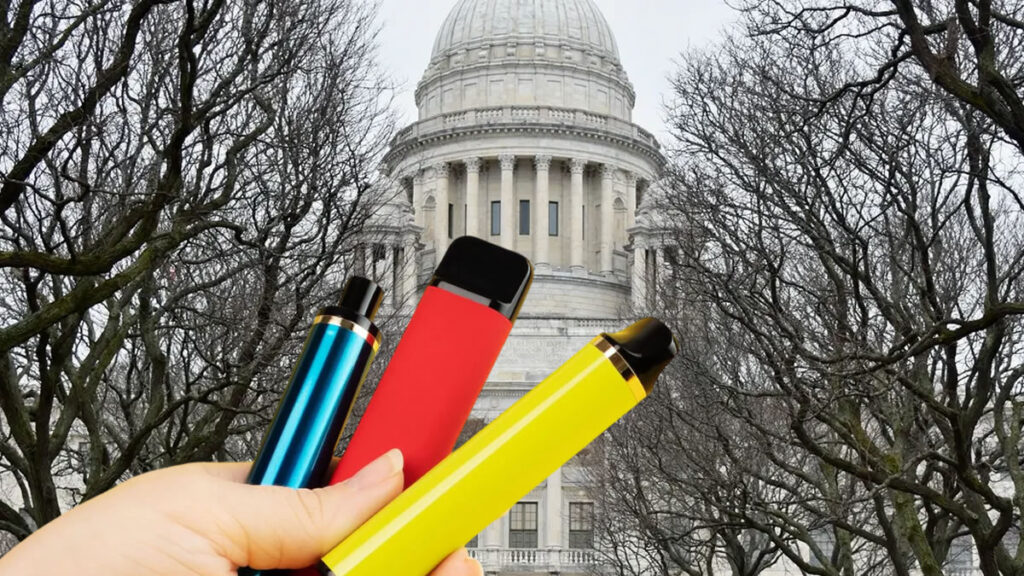Rhode Island's ban on the sale and possession with intent to sell flavored vape products officially took effect on New Year's Day, joining a list of new laws across Southern New England starting in 2025. The controversial legislation has drawn criticism from vape store owners who argue that it will harm their businesses, while state leaders maintain that e-cigarettes pose significant health risks, particularly for children.
In addition to the flavored vape ban, Rhode Island has also implemented new taxes on vaping products. Single-use vape products will now be subject to a 50-cent per milliliter tax on e-liquid, while refillable e-cigarettes will face a 10% tax on their wholesale price. These taxes, along with the flavor ban, aim to discourage vaping and curb the rise in youth nicotine use.
Two local vape companies attempted to delay the implementation of the flavor ban by filing a motion in court, but a federal judge denied their request. The businesses have also filed a lawsuit against the Rhode Island Department of Revenue, Division of Taxation, and the Department of Health, challenging the legality of the ban. However, on December 20th, U.S. District Court Judge Mary McElroy denied a motion for a restraining order that would have prevented the enforcement of the new law before its January 1st effective date.
As Rhode Island's flavored vape ban takes effect, the state joins a growing number of jurisdictions across the country seeking to address the public health concerns associated with vaping, particularly among youth. While the vaping industry continues to push back against such measures, citing potential economic harm, lawmakers and health advocates remain committed to protecting public health and curbing the rise of nicotine addiction among young people.
Meet Nick Schager, the co-founder of our vaping website. With a solid foundation of over 10 years in the industry, Nick brings an unparalleled depth of knowledge, having an extensive understanding of more than 1000 vaping products.




